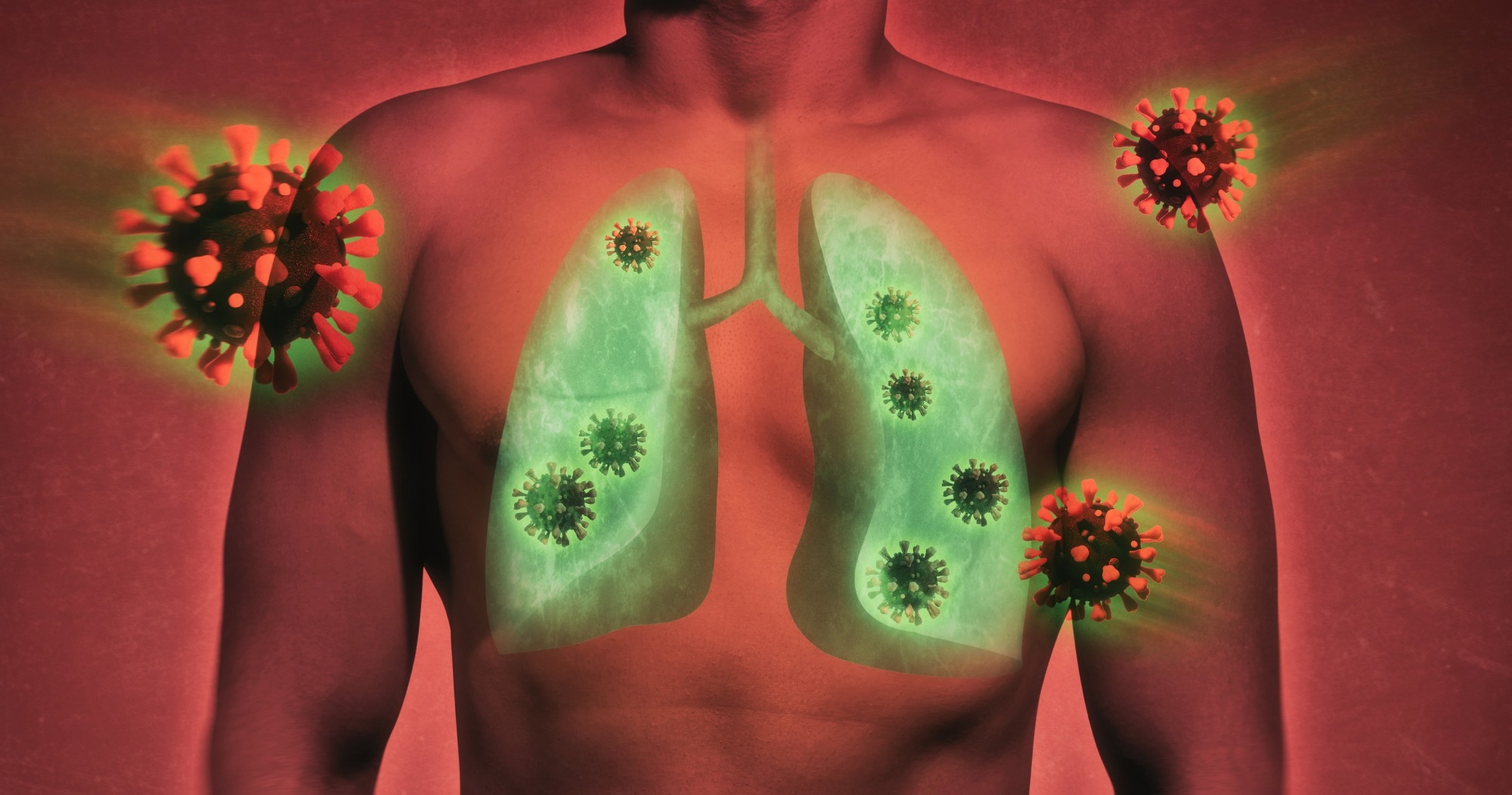Reviewed by Lauren HardakerMay 22 2025
A global group of scientists has discovered a genetic connection to persistent COVID-19 symptoms. The FOXP4 gene, which is known to impact lung function, is near the identified gene variant. Researchers from the Institute for Molecular Medicine Finland and the Karolinska Institute in Sweden led the study, which was published in Nature Genetics.
 Image credit: SvetaZi/Shutterstock.com
Image credit: SvetaZi/Shutterstock.com
There are still unknown biological reasons for long-lasting COVID-19 symptoms, also referred to as post-COVID. Breathing issues, exhaustion, and cognitive impairments are common symptoms that can lower quality of life.
In a collaborative effort known as the Long COVID Host Genetics Initiative, researchers analyzed genetic data from 6,450 long COVID patients alongside over a million control subjects across 24 studies in 16 countries.
They identified a gene variant that elevates the risk of developing long COVID by approximately 60 %. This genetic association was validated through an independent analysis that included an additional 9,500 cases.
Impaired Lung Function
The gene variant is positioned adjacent to the FOXP4 gene, which plays a role in lung development and lung disease.
Our findings suggest that impaired lung function plays a key role in developing long COVID. While this gene variant significantly increases risk, it is important to recognize it as just one part of a much larger puzzle.
Hugo Zeberg, Study Lead Researcher and Senior Lecturer, Department of Physiology and Pharmacology, Karolinska Institutet
“Genetic studies can provide insights into disease risk factors and are particularly powerful for diseases where the exact mechanisms remain unknown,” remarks Hanna Ollila, FIMM-EMBL group leader at the Institute for Molecular Medicine Finland, University of Helsinki, and researcher at the Department of Anesthesia and Center for Genomic Medicine at Massachusetts General Hospital, who co-led the study.
Source:
Journal reference:
Lammi, V., et al. (2025) Genome-wide association study of long COVID. Nature Genetics. doi.org/10.1038/s41588-025-02100-w.